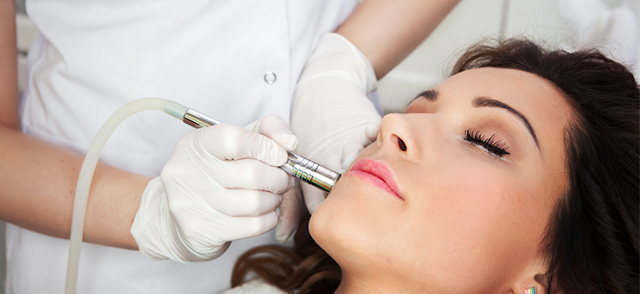Acne Treatment Options for Clear Skin
Are you tired of dealing with acne, a common skin condition affecting millions worldwide? Don't worry, you're not alone. The good news is that various effective treatment options are available to help you achieve clear, blemish-free skin. In this comprehensive guide, we'll explore these options in detail, giving you all the information you need to say goodbye to acne and hello to confidence!
Understanding
Acne
Understanding the causes of acne is crucial before deciding on how to treat it. This knowledge provides a foundation for creating an effective skincare routine and treatment plan. Acne primarily stems from the overproduction of sebum (skin oil) and the accumulation of dead skin cells, resulting in the blockage of hair follicles and clogged pores. In addition to these factors, bacteria, hormonal imbalances, and genetic aspects significantly contribute to the development of acne. A holistic understanding of these root causes allows for a more targeted and effective approach to managing and treating acne, ultimately paving the way for clearer and healthier skin.
Types
of Acne
Acne can manifest in different
forms, each with its characteristics and severity.
1. Non-Inflammatory Acne
Non-inflammatory acne includes
whiteheads and blackheads. These are caused by clogged hair follicles, leading to the formation of small bumps on the skin's
surface. They are typically not painful or red.
2. Inflammatory Acne
Inflammatory acne involves more
severe lesions that are red, swollen, and painful to the touch. This category
includes papules, pustules, nodules, and cysts. They occur when bacteria invade
clogged follicles, leading to infection and inflammation.
Over-the-Counter
Treatments
Over-the-counter treatments can be a
good starting point for mild cases of acne.
Topical Treatments
Benzoyl Peroxide: Benzoyl peroxide
reduces acne-causing bacteria on the skin's surface. It also helps to unclog
pores and reduce inflammation.
Salicylic Acid: Salicylic acid is
effective in treating non-inflammatory acne. It works by exfoliating the skin
and keeping the pores clear of debris.
Retinoids: Retinoids, derived from
Vitamin A, unclog pores, promote cell turnover, and prevent new acne lesions.
Oral Supplements
Zinc: Zinc supplements can help
regulate oil production in the skin and reduce inflammation.
Omega-3 Fatty Acids: Omega-3 fatty
acids are anti-inflammatory and help calm irritated skin.
MedSpa
Treatments for Acne
Cosmetic procedures provided by an
aesthetic practitioner may be necessary for more severe cases of acne. Some of
the most popular medspa treatments include:
1. Chemical Peels
Chemical peels are skin treatments that use chemical solutions, typically
acids, to improve the appearance and texture of the skin. They work by applying
a chemical solution to the skin, which causes the top layer to peel off,
revealing smoother and more evenly toned skin. The process stimulates the
production of collagen,
which can help reduce the appearance of fine lines, wrinkles, and acne scars.
The practitioner can adjust the depth and type of chemical peel based on
the individual's skin concerns and desired results, ranging from superficial
peels for mild issues to deeper peels for more significant skin imperfections.
Types of Chemical Peels
Glycolic Acid: Effective for mild
acne and hyperpigmentation.
Salicylic Acid: Targets acne and oil
production.
TCA (Trichloroacetic Acid): Deeper
peel for more severe cases of acne.
Benefits of Chemical Peels for Acne
Exfoliation: Chemical peels
effectively remove the top layer of dead skin cells, unclogging pores and
preventing the formation of new acne lesions.
Reduced Acne Scarring: They can
diminish the appearance of acne scars by encouraging the growth of new, healthy skin cells, resulting in smoother skin texture.
Improved Skin Tone: Chemical
peels can reduce redness and inflammation associated with acne, promoting a
more even and balanced skin tone.
Enhanced Product Absorption: After a
chemical peel, the skin is more receptive to skincare products, allowing
for better absorption and effectiveness of acne-fighting treatments.
2. Microneedling
Microneedling is a non-surgical
procedure involving a device with fine, sterile needles to create controlled
micro-injuries in the skin. These micro-injuries stimulate the body's natural
wound-healing process, producing collagen and elastin essential for maintaining
skin elasticity and firmness. The new collagen and elastin fibers help improve skin texture,
reduce fine lines and wrinkles, and minimize the appearance of scars, including
those caused by acne. Microneedling is a great way to improve the skin's texture, tone, and
firmness, resulting in a healthier and more vibrant appearance.
Benefits of Microneedling for Acne
Minimize Pore Size: Microneedling
can help reduce the appearance of enlarged pores, often associated with
acne-prone skin, leading to a smoother complexion.
Reduced Hyperpigmentation: This
minimally invasive technique can fade post-inflammatory hyperpigmentation (PIH)
left behind by acne, resulting in a more even skin tone.
Natural Healing Process:
Microneedling triggers the skin's natural healing processes, which means the
results are gradual and subtle, resulting in a more natural-looking improvement
in skin quality.
Minimal Downtime: Compared to more
aggressive acne treatments, microneedling typically involves minimal downtime,
allowing individuals to return to their daily routines relatively quickly.
3. Laser Therapy
Laser therapy is a medical procedure that uses concentrated beams of light energy to target specific tissues or areas of the skin. Dermatologists frequently employ lasers to address various skin conditions, including acne, scars, wrinkles, and vascular lesions. How laser therapy works depends on the specific type of laser used. For treating acne, lasers produce intense, focused light absorbed by the skin's sebaceous glands. This heat energy reduces oil production and destroys the acne-causing bacteria, ultimately decreasing acne inflammation and improving skin appearance. Different lasers, such as diode, fractional, or pulsed-dye lasers, are selected based on the specific skin concern and desired outcome.
Benefits of Laser Therapy for Acne
Precise Targeting: Laser therapy can
target acne lesions without affecting the surrounding skin, making it a
practical option for localized acne treatment.
Non-Invasive: It is a non-invasive
procedure with minimal discomfort and no need for surgical incisions or
downtime.
Long-Lasting Results: Laser treatment
for acne scars can provide long-lasting relief by addressing the root causes of
acne, such as excess oil production and bacteria.
Customization: Different lasers can
be tailored to an individual's acne type and skin tone, ensuring a personalized
therapy approach.
Finding
Mespa Services Near You
Achieving clear skin is a journey
that requires patience and a multifaceted approach. By exploring various
medical approaches such as chemical peels, microneedling, and laser therapy, as
well as making positive lifestyle changes, you can take significant steps
towards a clearer complexion.
If you're in Corona, California,
visit M Health and Beauty and schedule an appointment for our exceptional Medspa
services, specializing in acne treatment to help achieve your skin goals.





Comments
Post a Comment